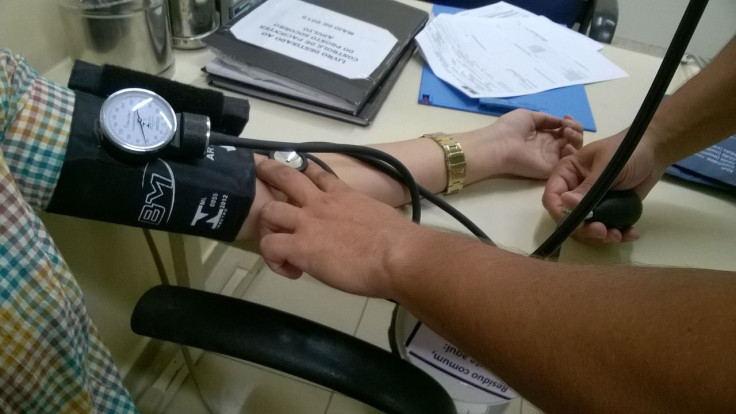Group Stereotypes Negatively Impact Health Care; Prejudice Leaves Some Patients Feeling Vulnerable

Group stereotypes lead to poor health care, finds a new study published in the American Journal of Preventive Medicine.
Researchers from the University of Southern California-Los Angeles, Loyola Marymount University, and University of Michigan cited that recently, it's been suggested that health care stereotype threat (HCST)— the threat of being personally reduced to a group stereotype, such as unhealthy lifestyles and inferior intelligence — contribute to health care disparities. These disparities "affect the care one receives by impairing working memory or creating anxiety, which could lead a patient to forget or intentionally withhold important information." It’s a relatively new phenomenon, and one that researchers were interested in learning more about it.
To measure for HCST, researchers surveyed 1,500 men and women as part of U-Michigan's U.S. Health and Retirement Study, asking them three questions across six different aspects of identity, such as “When you visit the doctor, do you worry that the doctor or other medical staff make judgements about you because of your [race/ethnic background, gender, age, weight, money or other reason?” Participants could only answer yes or no, and if they answered yes with respect to a particular identity, they were then asked "if they worry that they might act in ways that justify such judgements and whether they think that judgements affect the quality of health care they receive."
Study participants also self-reported their physical and mental health status, including diagnosed hypertension and depressive symptoms; overall, they could report if their health was excellent, very good, good, fair, or poor.
Seventeen participants reported HCST with respect to one or more aspect of their identities; many said they felt vulnerable in health care settings. Specifically, blacks and Latinos had higher odds of reporting race-related HCST than whites, while overall, less than 2 percent were related to race-ethnicity/gender and 8.3 percent were related to age/weight. Household income and education level did not seem to factor into money-related HCST, but when compared to participants who did not have a degree, researchers found that "those with a master's or professional degree had marginally statistically significant lower odds of reporting HCST."
As for health, analyses showed that those who reported experiencing HCST on the basis of one or more aspects of identity had higher odds of poor self-rated health, hypertension, and depressive symptoms compared to those with no HCST experience. What's more is those who reported two or more types of HCST had 3.8 times greater odds of worrying that they acted in ways that justified health care provider's passed judgements, as well as 8.3 times greater odds of thinking judgements affect the quality of care they receive.
If that weren't enough, HCST was associated with greater distrust of physicians and dissatisfaction with health care too, and in some cases lowered odds of participants getting their flu vaccine. This is particularly problematic when you consider some studies suggest the elderly need higher dose flu shots to reduce risk of hospitalization.
Even if doctors were more mindful of prejudice, researchers cite that public health campaigns often communicate and reinforce negative stereotypes about certain groups of people, albeit unintentionally. The result increases odds of HCST, "which can affect health care efficacy and even prompt some patients to avoid care altogether," said lead study author Cleopatra Abdou, an assistant professor at the USC Davis School of Gerontology and Department of Psychology, in a press release.
"It's time for us to implement policies that enhance medical school training in cultural competency and increase the diversity of our physicians and broader health care workforce," Abdou added. "Hospitals and other health care institutions with inclusive policies which welcome diversity and celebrate tolerance, both symbolically and explicitly, hold great promise for reducing health care stereotype threat and the short- and long-term health disparities that we are now learning result from it."
Abdou and her team believe their study is the first to show that the experience of HCST is associated with poorer health outcomes. But at the same time, they conceded that the data and sample they used was limited. Future research should include those who have not recently seen a doctor (study participants had seen the doctor in the previous 2 years), as well as recruiting younger participants in order to compare health outcomes among younger and older adults.
Source: Abdou CM, Fingerhut AW, Jackson JS, Wheaton F. Healthcare Stereotype Threat in Older Adults in the Health and Retirement Study. American Journal of Preventive Medicine. 2015.



























